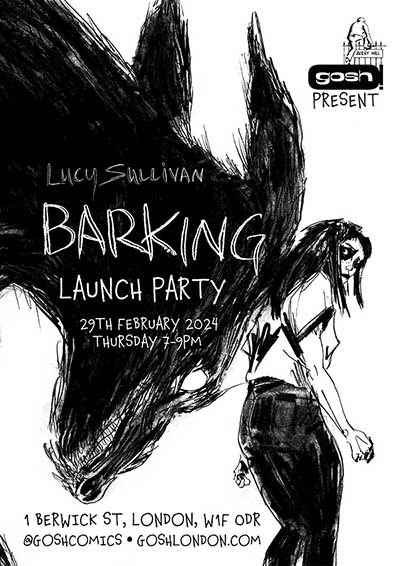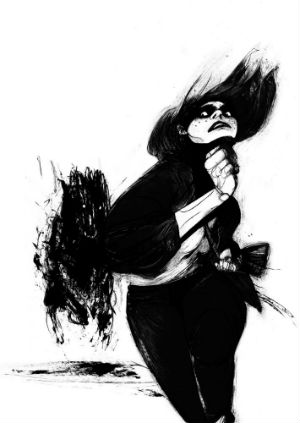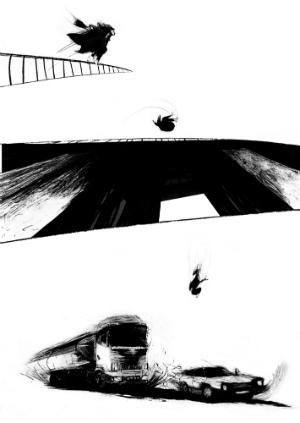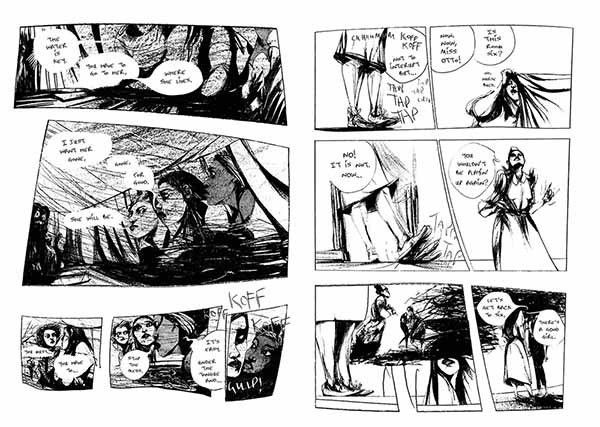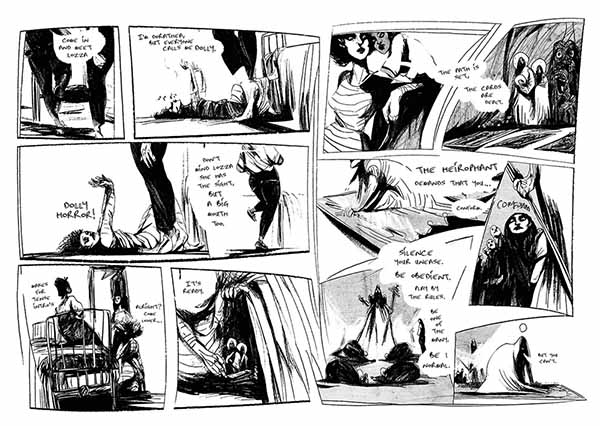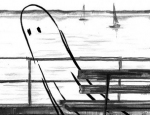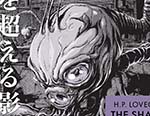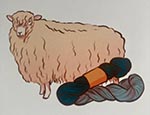This isn’t something we normally do at Broken Frontier but on this occasion it would feel critically irresponsible not to re-run our review of Lucy Sullivan’s Barking, given the new edition of the book from Avery Hill Publishing is out this week. As I said when we originally reviewed this essential graphic novel in 2019 “when I first saw Lucy Sullivan’s early art for Barking I was immediately aware we were witnessing a very special new comics talent emerging.” If memory serves we were the first site to cover Sullivan’s work way back in 2018 and her body of work since then is testament to the accuracy of that quote. So let’s dive back into the world of Barking with an edited re-presentation of our previous coverage…
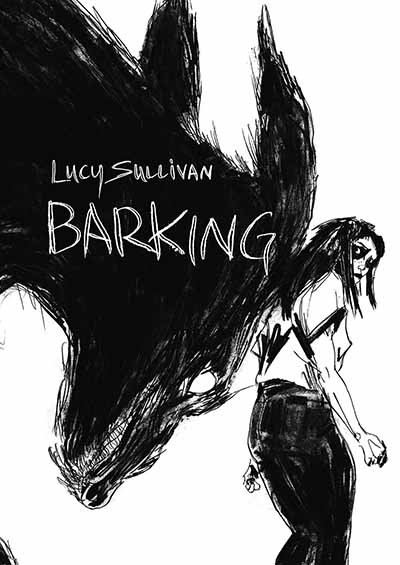
When we first encounter Barking‘s central character Alix Otto she is not in a good place. One year after her friend’s body was found in a river Alix is being pursued by a giant black dog. In a state of extreme distress she is picked up by the police and sectioned under the Mental Health Act. That fearsome canine apparition, though, continues to torment her and she finds herself haunted not just by the taunting dog but also by the ghost of her deceased friend. In the confines of an inadequate medical system can Alix finally accept the events of her past and allow herself to move on?
Sullivan has spoken with great candour about the real life circumstances that this graphic novel is based on and her reasons for framing it in terms of fictional parable, stating in a previous Broken Frontier interview: “My dad died suddenly when I was 23 and a year later I found myself in the grip of complete self-destruction and was diagnosed with depression and anxiety. It can be difficult to write honestly about those times and I found I was writing myself much nicer than I was so I re-wrote it as an allegory with a lead character to drive the narrative.”
Barking is propelled forward by the most potent visual metaphor and, while the analogy of the Black Dog is a much revisited one in graphic narrative, it’s Sullivan’s terrifying incarnation of it that is so remarkable in these pages. As metaphor goes this version is not merely a brooding presence that patiently lies in wait. It’s a predator not an opportunist, one that chases its victim with a chilling agency of its own. It’s not so much representing Alix’s feelings of depression and anxiety as actively encouraging and provoking them.
Sullivan’s scratchy, busy visuals have an urgent intensity that perfectly embodies Alix’s rapid descent into grief-induced instability. The clarity of her world quickly disintegrates into muddled, overwhelming darkness as the oppressive influence of the forces that have shaped her psychosis run riot. Sullivan’s use of both claustrophobic, borderline abstract visuals and contrasting white space – together with a clever, tension-building employment of lettering and speech balloons to overwhelm and repress her protagonist – is almost sublime in its dizzying and disconcerting realisation.
Barking is a story where reality and nightmare are so interconnected that it no longer becomes important which is which. This is pure comics in terms of Sullivan not just creating a narrative that exploits its unique storytelling devices to such profound effect but also in the manner in which she fosters such an intimate relationship between reader and page. Her deeply disturbing portrayal of Alix’s plight draws us into her world with such an acute and devastating sense of empathy. We don’t simply observe Alix’s regret, guilt, self-reproachment and distress. We don’t even just feel them. In the course of this 100-plus pages we live them. And that, by far, is the greatest triumph of this astonishing piece of graphic medicine.
Lucy Sullivan (W/A) • Avery Hill Publishing, £16.99
Review by Andy Oliver
Lucy Sullivan will be signing Barking at the book’s launch party at Gosh! Comics on Thursday, February 29th. More details here.
